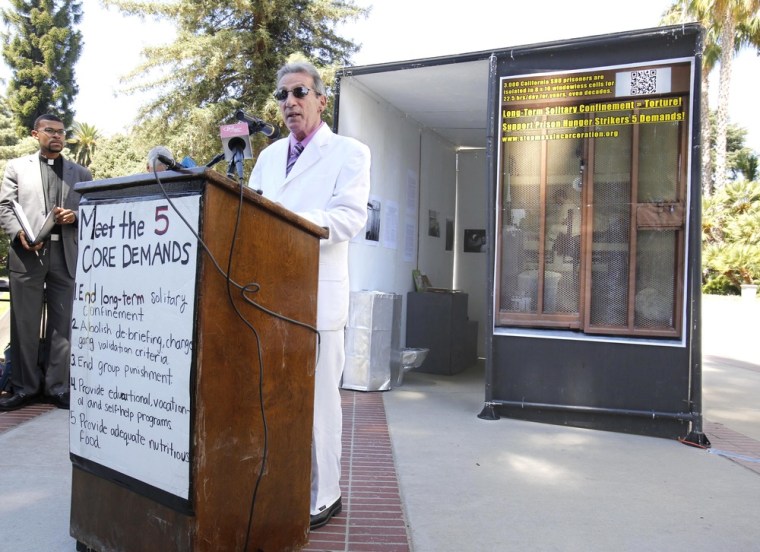SACRAMENTO, Calif. — California authorities won court approval on Monday to force-feed some prisoners on a hunger strike after officials voiced concerns that the inmates may have been coerced into refusing food in a protest against the state's solitary confinement policies.
U.S. District Court Judge Thelton E. Henderson, responding to a request by state authorities, ruled that California prison doctors may force-feed select inmates who are near death, even if they had signed orders asking not to be resuscitated.
Some 136 inmates are currently taking part in a hunger strike that began July 8 in prisons statewide to demand an end to a policy of housing inmates believed to be associated with gangs in near-isolation for years. Some 69 of the striking inmates have refused food continuously since the strike began.
Prior to the judge's decision, California policy prohibited force-feeding of inmates on a hunger strike if they have signed medical orders refusing resuscitation in the event they lose consciousness or experience heart failure.
But officials went to court on Monday to ask for permission to ignore these "do-not-resuscitate" orders for inmates who signed them during the hunger strike or just prior to it, citing concerns about possible coercion.
Henderson wrote in his order that in view of those concerns, a "do not resuscitate" order signed by such inmates would be "deemed not valid."
The move came as hundreds of inmates have fallen ill after weeks of refusing food for the hunger strike, which at its peak drew 30,000 participants although numbers have since dwindled substantially.
A lawyer for some of the hunger strikers said she was not aware of inmates being coerced.
"They're exaggerating this," said inmate advocate Carol Strickman.
The state should not ignore inmates' wishes in such matters of life and death, Strickman said. "As much as I don't want to see anybody die, some people were choosing to sign those requests and some were not."
Among the complaints sending inmates to hospital in recent days are dehydration, cramping, vomiting, diarrhea, dizziness and lightheadedness, said Liz Gransee, a spokeswoman for the federal receiver overseeing care in the state's prisons.
"This is so our doctors, when they see an inmate near death, will know that they can step in and do anything," said Joyce Hayhoe, another spokeswoman for a federal receiver.
